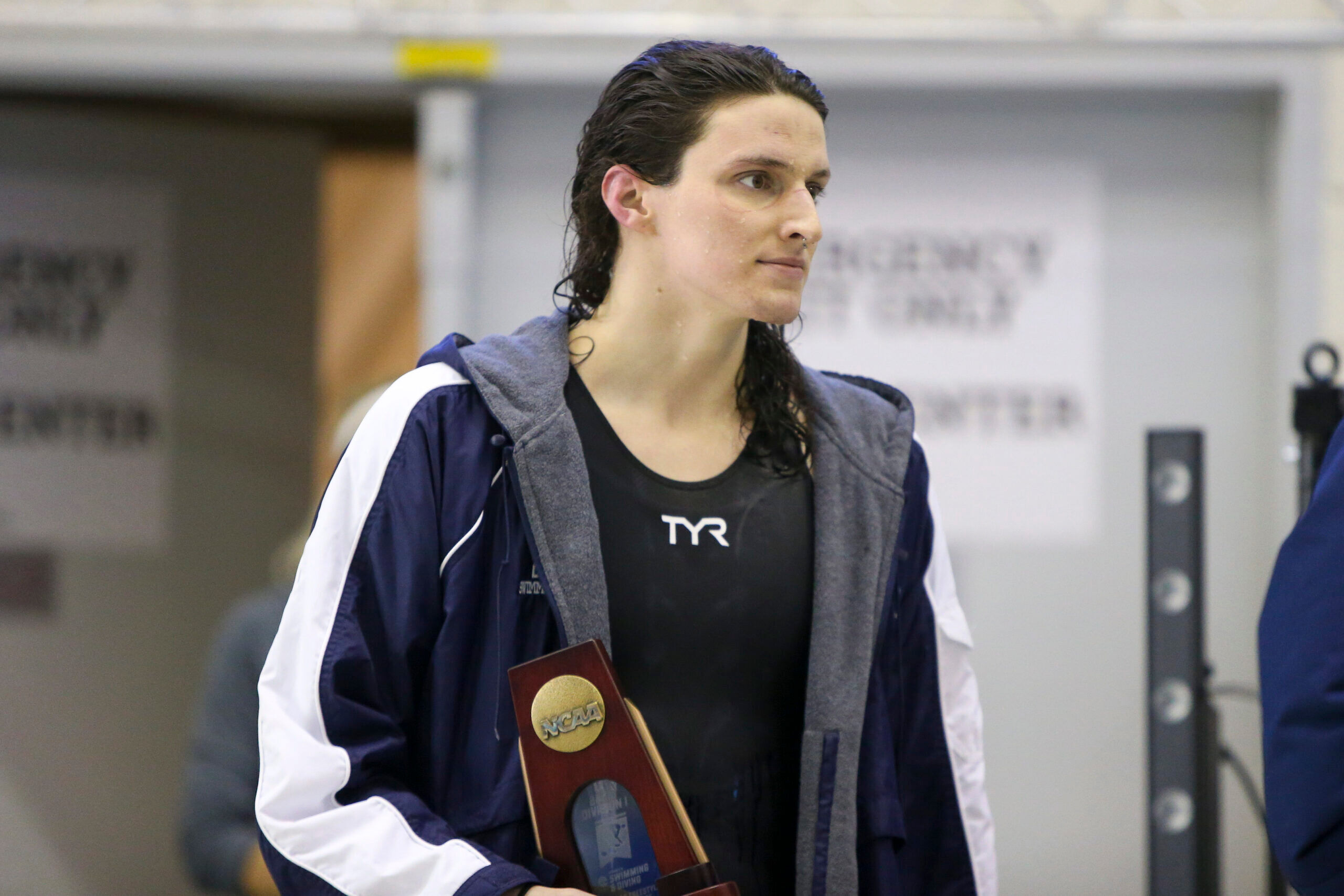Lia Thomas is a trans woman competing for the University of Pennsylvania women’s swimming team, recently winning a national championship.
As she has competed there has been widespread conversation and speculation about Thomas, largely dominated by people who oppose her participation, as many of her supporters and traditionally trans-friendly media have been quiet.
In that time I’ve gotten questions and messages from people across the spectrum — supporting and opposing Thomas competing in women’s NCAA swimming. I’ve also seen false or partly false information shared as fact.
We’re setting the record straight here on some claims. These numbers are as of the publication date — If they change with future performances by Thomas, we will adjust as we want this analysis to remain accurate.
Get off the sidelines and into the game
Our weekly newsletter is packed with everything from locker room chatter to pressing LGBTQ sports issues.
Lia Thomas broke a record by 38 seconds
False. This conflates a couple pieces of information. Thomas did win a race — the 1,650-yard freestyle at the Zippy Invitational — by about 38 seconds. Yet her breaking of school and Ivy League records has been by smaller margins of a couple seconds. And while 38 seconds is a long time in the pool, the distance at which she won that race is the longest in the NCAA and takes over 15 minutes for women to complete.
Thomas’ times are only 2-3% slower than her pre-transition times
True and false. From her comments we know it has been over two years since Thomas started her medical transition. What we know is that her posted times on the women’s team are slower than her posted times on the men’s team across the board. In the 200 they’re 2.6% slower, 5.9% slower in the 500, and 7.3% slower in the 1,650. She is slower, but so far she seems to be over that 2-3% change in most of her events.
Women are generally 11-12% slower than men in the pool
True and false. Women are generally slower than men — That is true. Is it 11-12%? It depends on what you look at. On the one hand are times for national records and national titles. When looking at NCAA records in Thomas’ three main events, the women’s national-record times are considerably slower in each event: In the 200 by 11.2%, in the 500 by 7.2%, and in the 1,650 by 6.0%. Yet when looking at the Ivy League records, those numbers jump: In the 200 the men are faster by 16.9%, in the 500 by 9.1%, and in the 1,650 by 8.8%. If you look at the NCAA “A” standard of qualification for championships, only one of Thomas’ qualifying events has a difference of over 11%, with the lowest difference about 8%. The women are slower, but by exactly how much? It depends in large part on distance.
No trans college athlete has ever won a national title
False. CeCé Telfer won an NCAA Division II national title in the hurdles in 2019. A couple other trans athletes have won national or world titles outside of college. Some trans women have been the best, or amongst the best, players on their college teams — like June Eastwood and Navi Huskey — but they have not come close to winning national titles.
One of the records Thomas broke has been broken 20 times since 2000
Unknown. Swimming records are broken all the time, and it’s entirely possible that a record has been broken that many times in two decades. Previously this entry said it was “false,” under the misunderstanding that the claim was based on meets since 2020. We will get the answer to this.
Thomas is the fastest swimmer in the country in her events
True and false. Headed into the NCAA Championships, Thomas had the fastest times amongst all women in the NCAA in the 200- and 500-free, and she was top-10 in the 100-free and 1,650-free. She has not set any national records. She has won a national championship in the 500-free.
If you see information about Lia Thomas that is being shared publicly and looks questionable or suspicious, feel free to leave it in a comment below and Outsports will find the answer.








































